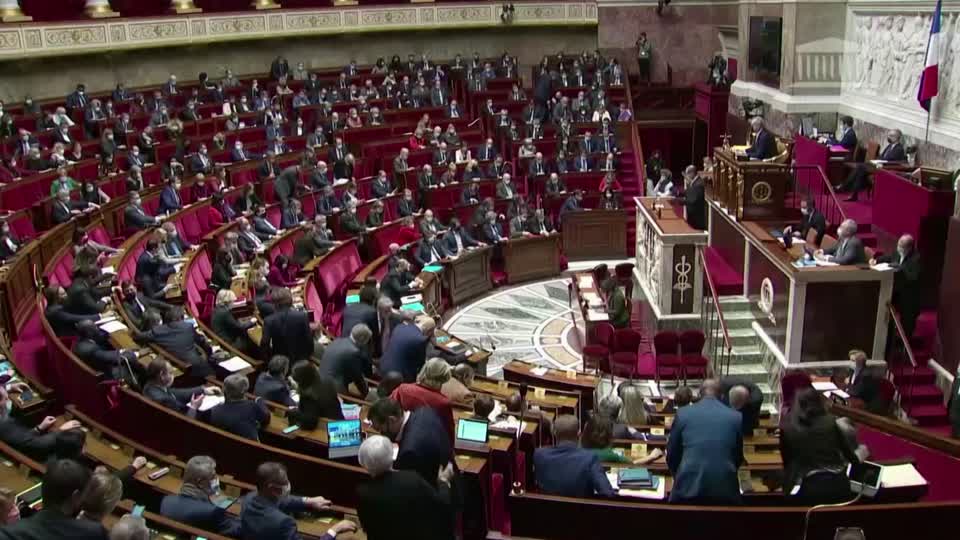France’s National Assembly passed a controversial bill on Tuesday with the aim of curbing the rise of Islam.
The so-called anti-separatism bill strengthens state oversight of mosques, schools and sports clubs.
It also includes new harsh measures against online apologists for acts of violence and suppresses practices like forced marriage and virginity testing.
The project was presented by President Emmanuel Macron, who said it will strengthen the country’s secular principles.
His party said the need for such a law was highlighted by the murder of a professor in Paris last October.
Samuel Paty was beheaded by an Islamic teenager after showing cartoons of the Prophet Muhammad in a class on freedom of expression.
Less than two weeks later, a church director and two worshipers were killed in a basilica in Nice by a Tunisian Islamist.
Guillaume Vuilletet is from the party in power of the president.
“The fight against ‘separatism’ has been an imperative of national interest. The tragedy (Islamic murder of Professor Samuel Paty) made it an urgent moral necessity. So what is in this bill? First, it guarantees our need for secularism after major advances in our public actions. Second, it protects victims of ‘separatism’, whether physically or online. “
Tuesday’s vote in the Chamber of Deputies was the first obstacle to a bill that proved controversial on both the right and the left.
Some on the left say it is an attack on France’s five million Muslims, while critics on the right say it is too weak.
Still, he passed with 347 votes in favor and 151 against.
The legislation now goes to the Senate, where the center-right opposition dominates.
His approval is seen as the key to Macron’s hopes of re-election for 2022.
French identity and home security are expected to be central issues in the presidential vote.
Video transcription
– [SPEAKING FRENCH]
– The French National Assembly passed a controversial bill on Tuesday with the aim of curbing the rise of Islam.
The so-called anti-separatism bill strengthens state oversight of mosques, schools and sports clubs. . It also includes harsh new measures against online apologists for acts of violence and represses practices like forced marriage and virginity testing.
The project was presented by President Emmanuel Macron, who said it will strengthen the country’s secular principles.
His party that the need for such a law was highlighted by the murder of a teacher in Paris last October.
Samuel Paty was beheaded by an Islamic teenager after showing cartoons of the Prophet Muhammad in a class on freedom of expression.
[GUN SHOTS]
Less than two weeks later, a church director and two worshipers were killed in a basilica in Nice by a Tunisian Islamist.
Guillaume Vuilletet is from the party in power of the president.
GUILLAUME VUILLETET: [SPEAKING FRENCH]
INTERPRETER: The fight against “separatism” has been an imperative of national interest. The tragedy made it an urgent moral necessity. So what’s in this account? First, it guarantees our need for secularism after major advances in our public actions. Second, it protects victims of “separatism”, whether physically or online.
– Tuesday’s vote in the Chamber of Deputies was the first obstacle to a bill that proved controversial on the left and right.
Some on the left say it is an attack on France’s five million Muslims, while critics on the right say it is too weak.
Still, he passed with 347 votes in favor and 151 against.
The legislation now goes to the Senate, where the center-right opposition dominates.
His approval is considered the key to Macron’s hopes of re-election for 2022.
French identity and home security are expected to be central issues in the presidential vote.
